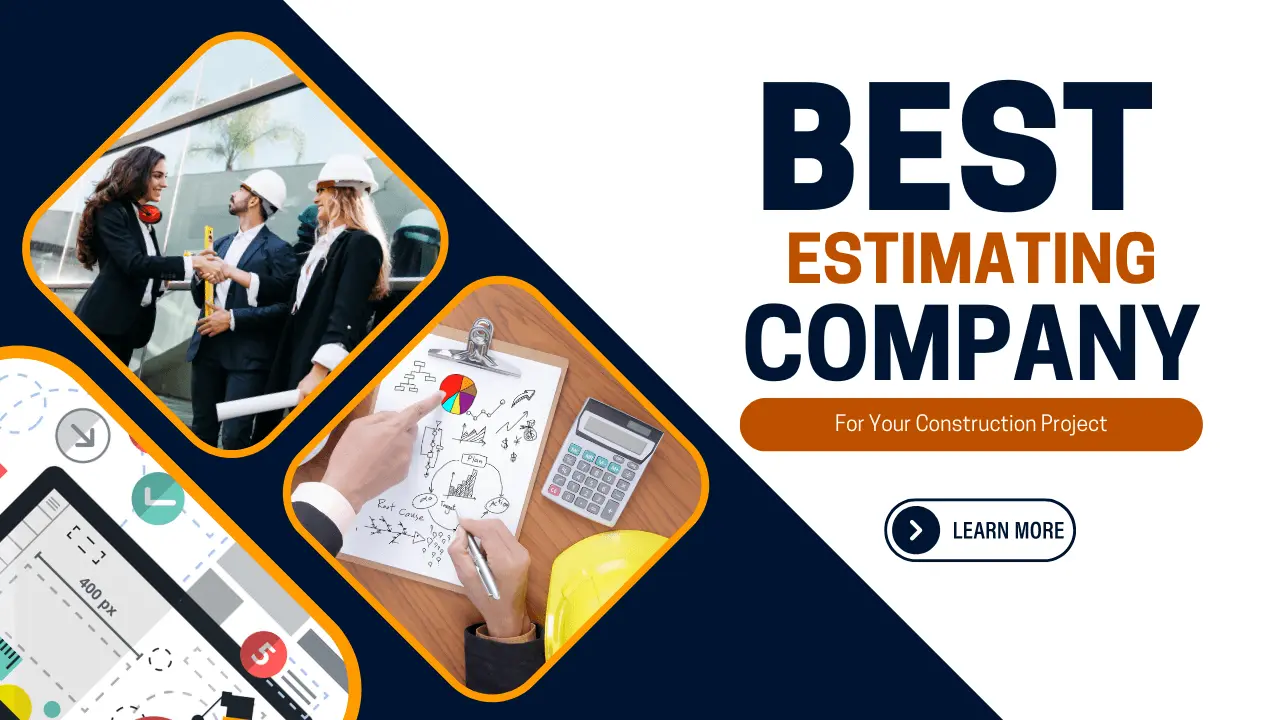In the construction industry, accurate cost estimation is crucial to project success. It involves forecasting expenses related to labor, materials, equipment, and other resources required for a construction project. Proper estimation ensures better planning, budgeting, and overall management of the project. This article provides a comprehensive guide on why estimation is important in construction and the benefits it brings to various stakeholders. It also provides tips on how to properly estimate costs, as well as tools and software that can help. Finally, the article offers some best practices for successful cost estimation.

Importance of Accurate Estimation in Construction
Accurate cost estimation is essential for successful construction projects. It can help to identify any potential cost overruns and ensure that the construction project is completed on time and within budget.
Why is Estimation Crucial in Construction Projects?
Accurate estimation is the foundation of successful construction projects. It helps in defining the project scope, allocating resources, and ensuring that the project stays within budget. Estimation plays a pivotal role in decision-making, risk management, and setting realistic expectations for clients. Without precise estimates, construction projects are prone to delays, cost overruns, and dissatisfaction among stakeholders.
Benefits of Construction Estimation

Skilled estimators play a crucial role in the construction process by accurately predicting project costs, which helps prevent budget overruns. They ensure that resources are allocated efficiently and that the project timeline is realistic. Their expertise can also identify potential risks and mitigate them before they become costly issues.
- Better Planning
- Budgeting and Planning
- Client Satisfaction
- Risk Management
- Cost Reduction
- Maintaining the Budget
- Professionalism
1. Better Planning

Detailed Project Scope
Accurate estimation is fundamental in defining the project scope in detail. By outlining the resources needed and the timeline for completion, estimation ensures that all aspects of the project are considered. This detailed planning helps avoid misunderstandings and ensures that every stakeholder is on the same page regarding the project’s requirements and objectives.
Resource Allocation
With accurate estimation, resources can be allocated efficiently. This includes manpower, materials, and machinery, ensuring that the project progresses smoothly without any interruptions. Proper resource allocation minimizes downtime and maximizes productivity, which is essential for meeting project deadlines.
Budgeting and Planning

Financial Management
Proper estimation allows for effective financial management. It helps in determining the total cost of the project and ensuring that it aligns with the client’s budget. Accurate budgeting is essential for the overall financial health of the project, preventing overspending and ensuring that funds are used wisely.
Cash Flow Management
Estimating helps in planning the cash flow throughout the project. It ensures that funds are available when needed, preventing delays due to financial constraints. Effective cash flow management is crucial for maintaining the project’s momentum and avoiding costly stoppages.
Client Satisfaction

Transparency
Providing accurate estimates to clients fosters transparency. Clients can see where their money is going, which builds trust and improves satisfaction. Transparent communication regarding costs and timelines helps in managing client expectations and reduces the likelihood of disputes.
Meeting Expectations
Accurate estimation helps in setting realistic expectations with clients. It ensures that the project is completed within the agreed budget and timeline, enhancing client satisfaction. Meeting or exceeding client expectations can lead to repeat business and positive referrals, which are vital for the growth of construction companies.
Risk Management

Identifying Potential Risks
Estimating helps in identifying potential risks and uncertainties associated with the project. This allows for the development of strategies to mitigate these risks. Early identification of risks enables proactive measures, reducing the likelihood of project disruptions.
Contingency Planning
By considering various scenarios, estimation aids in contingency planning. This ensures that the project can proceed smoothly even if unexpected issues arise. Having a contingency plan in place provides a safety net that can be crucial in maintaining project timelines and budgets.
Cost Reduction

Efficient Procurement
With accurate estimates, procurement processes can be streamlined. This helps in purchasing materials and equipment at the best prices, reducing overall costs. Efficient procurement practices ensure that the project remains within budget while maintaining the quality of materials and workmanship.
Waste Minimization
Proper estimation helps in minimizing waste by ensuring that only the necessary amount of materials is ordered. This reduces costs and environmental impact. Minimizing waste not only saves money but also aligns with sustainable construction practices, which are increasingly important in today’s market.
Maintaining the Budget

Monitoring and Control
Accurate estimation allows for effective monitoring and control of the project budget. It helps in tracking expenses and ensuring that they stay within the allocated budget. Regular monitoring ensures that any deviations from the budget are identified and corrected promptly.
Avoiding Cost Overruns
By providing a clear financial roadmap, estimation helps in avoiding cost overruns, ensuring that the project remains financially viable. Avoiding cost overruns is essential for maintaining profitability and ensuring that the project delivers value to all stakeholders.
Professionalism

Building Reputation
Consistently providing accurate estimates enhances the reputation of construction companies. It demonstrates professionalism and reliability, attracting more clients. A strong reputation for accurate estimation and successful project delivery is a significant competitive advantage.
Compliance with Standards
Proper estimation ensures compliance with industry standards and regulations, reducing the risk of legal issues and project delays. Adhering to standards not only ensures project success but also builds trust with clients and regulatory bodies.
How to Estimate Construction Costs
Accurate construction cost estimation involves several steps, including understanding the project scope, gathering detailed information, and using the right tools. Here is the step-by-step guide to estimating construction costs:
- Project Scope Definition: Clearly define project requirements and objectives.
- Measurements should be detailed: Take precise measurements and quantify the materials needed.
- Cost Analysis: Analyze labor, materials, equipment, and other costs.
- Contingency Planning: Include a contingency budget for unexpected costs.
- Review and Validation: Review the estimate for accuracy and validate with stakeholders.
Construction Estimating Software
Advancements in technology have introduced various software tools for construction cost estimating. These tools improve accuracy and efficiency, making the estimation process faster and more reliable. Popular construction estimating software includes:
These tools can analyze vast amounts of data quickly, providing detailed and precise estimates.

Types of Construction Estimates
Preliminary Estimates
These are rough estimates used in the initial stages of project planning to provide a general idea of the project cost.
Detailed Estimates
These are comprehensive estimates that consider every aspect of the project, including materials, labor, equipment, and overheads.
Bid Estimates
These are used to submit proposals to clients, providing a detailed breakdown of costs to win construction contracts.
Consequences of Poor Estimation in Construction
Delays and Disruptions
Inaccurate estimates can lead to project delays and disruptions due to inadequate planning and resource allocation.
Cost Overruns
Poor estimation often results in cost overruns, straining the project’s budget and potentially leading to financial losses.
- Client Dissatisfaction
Inaccurate estimates can lead to client dissatisfaction if the project exceeds budget or fails to meet expectations.
How Does Estimation Impact Construction Project Success?
Project Efficiency
Accurate estimation enhances project efficiency by ensuring that all resources are available when needed, preventing delays and disruptions.
Financial Health
Proper estimation ensures that the project remains within budget, maintaining the financial health of the project and the construction company.
Stakeholder Confidence
Accurate estimates build confidence among stakeholders, including clients, investors, and project teams, leading to smoother project execution and higher satisfaction.
Factors to Consider in Construction Estimation
One of the biggest risks of underestimating project costs is running out of funds before the project is completed. This can lead to delays, compromised quality, and even project abandonment. Additionally, underestimating costs can damage the reputation of the construction firm and erode client trust.
Material Costs
Accurate estimation requires considering the costs of materials, including fluctuations in prices due to market conditions.
Labor Costs
Labor costs can vary based on the complexity of the project, the skill level of the workforce, and local wage rates.
Equipment Costs
Estimating equipment costs involves considering the rental or purchase price, maintenance, and operation costs.
Overheads
Overhead costs, such as administrative expenses, insurance, and permits, should be included in the estimate.
Contingencies
A contingency budget should be included to cover unexpected expenses and risks that may arise during the project.

Common Mistakes in Construction Estimation
Common mistakes in construction estimation include inaccurate measurements, inadequate research, and insufficient budget. Poor communication can also lead to incorrect estimates, as can underestimating the complexity of a job. Additionally, failure to review estimates can lead to costly mistakes.
Incomplete Scope Definition
Failing to define the project scope accurately can lead to significant cost overruns and delays.
Ignoring Market Trends
Ignoring market trends and price fluctuations can result in inaccurate cost estimates.
Underestimating Labor Costs
Underestimating labor costs can lead to insufficient budget allocation and project delays.
Failing to Include Contingencies
Not including a contingency budget can result in financial strain if unexpected expenses arise.
Overlooking Indirect Costs
Indirect costs, such as overheads and administrative expenses, should not be overlooked in the estimation process.
Conclusion
Accurate cost estimation is essential for the success of any construction project. It ensures better planning, budgeting, client satisfaction, and risk management. By leveraging technology and adhering to best practices, construction companies can provide accurate estimates, reduce costs, and maintain their budgets, ultimately leading to successful project completion. Estimation is not just about numbers; it’s about creating a roadmap for success that benefits all stakeholders involved.






